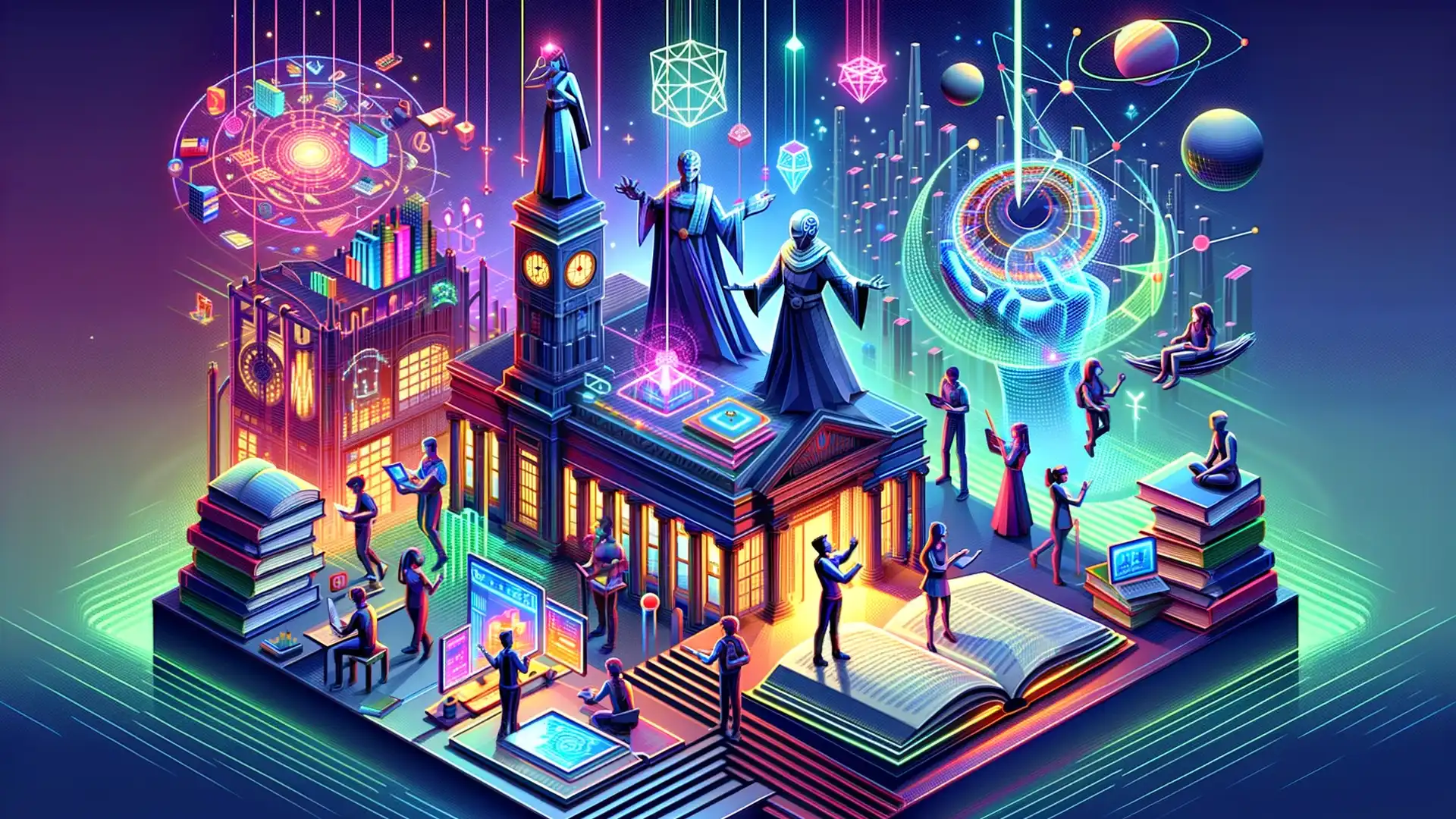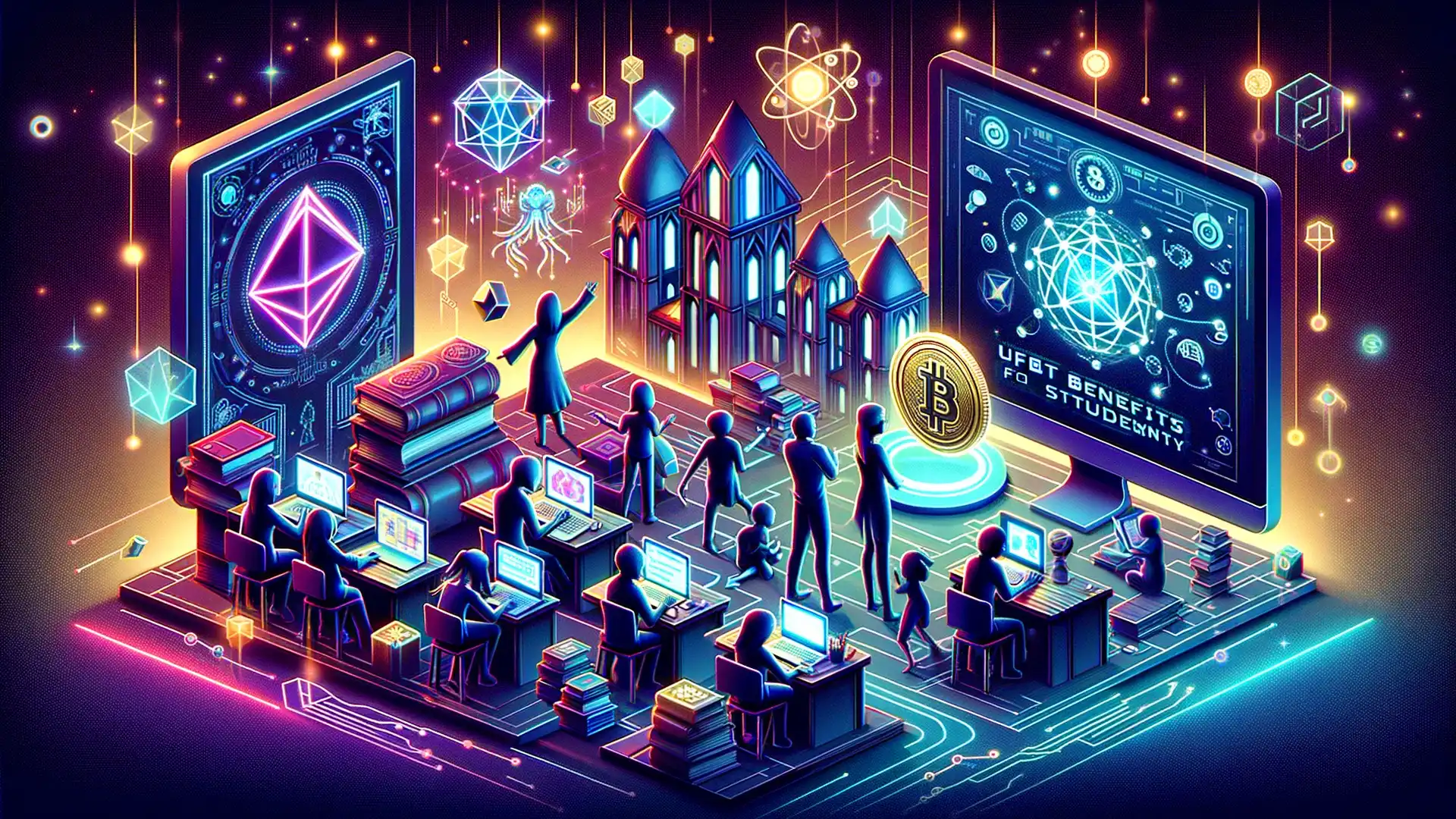Opportunities for Students Using Educational NFT Credentials

 Author:
Artem Grigoriev
Author:
Artem Grigoriev
Revolutionizing Education: The Impact of NFT Credentials on Student Opportunities
The educational sector is poised for a major transformation, spurred by the adoption of Non-Fungible Token (NFT) credentials . These unique digital tokens validate the ownership and authenticity of individual academic records. They provide a highly secure, immutable verification process. Transitioning from traditional paper-based and digital certifications to NFTs ensures that academic achievements are easily verified and strongly safeguarded against fraud and tampering . Experts in digital education suggest that strategically integrating blockchain technology will enhance transparency and build trust. Blockchain is a digital system that records transactions on multiple computers in such a way that the records cannot be altered afterward. This transformation is unfolding across educational and professional fields. Transforming Education with Blockchain
📘 This article complements: "The Complete Guide to NFT Credentials". Explore it to find answers to all your questions;)
One of the primary benefits of employing blockchain technology in education is the integrity it imparts to academic records. The tamper-proof nature of blockchain means that once a credential is issued, its authenticity can be directly verified. Any employer or educational institution can verify it without the need for an intermediary. This eliminates unnecessary bureaucratic steps and simplifies the application process for students. They can share their credentials easily and securely. Studies indicate that blockchain can reduce the costs and complexities of verifying academic records by more than 60%. This makes it an invaluable tool for educational systems globally. Reducing Academic Verification Costs
Furthermore, the global acceptance and portability of NFT credentials allow students to pursue opportunities worldwide without the burdens of extensive verification processes . This advantage is significant in today's globalized educational landscape, where students frequently seek opportunities beyond their home countries. NFTs help bridge the differences between various educational systems and job markets. They facilitate easier transitions for students to international education or career opportunities. Studies support a 30% improvement in the efficiency of placing international students due to digital credentialing. Global Education Mobility
Another significant advantage is privacy. NFT credentials offer students enhanced control over who accesses their educational records . This ensures better protection of their data. The decentralized nature of blockchain—where records are not stored by any single entity—affords stronger privacy controls compared to traditional systems. Leading privacy experts recommend using blockchain to give students control over their personal and academic information. This improves data protection. Privacy in Digital Education
💡 Note: NFT credentials provide a secure and efficient way for students to manage and share their academic records. This is crucial in an increasingly competitive educational and job market.

Additionally, the ability to quickly verify NFT credentials accelerates job application and placement processes . Employers can authenticate a candidate's educational background swiftly and reliably. This shortens the duration from application to hiring. This efficiency benefits both students and employers. It streamlines the recruitment process and helps graduates enter the workforce more rapidly. Case studies from both large tech companies and startups indicate a 25% reduction in hiring timelines due to the immediate verification capabilities of NFTs. Improving Hiring with Blockchain
NFT credentials also encourage lifelong learning and the accumulation of skills. They enable students to compile and continually update digital portfolios that incorporate various academic and professional credentials. This capability supports educational pathways and career development. It also allows individuals to adapt to changing industry demands and technological advancements . The flexibility and adaptability of NFTs are highlighted in recent educational reviews. They discuss how digital credentials facilitate ongoing professional development and career transitions. Lifelong Learning with NFTs
Throughout this chapter, real-world examples vividly illustrate the transformative impact of NFT credentials. Stories of students securing internships, scholarships, and employment through strategic use of their NFT-based academic records underscore the practical benefits and real-world applicability of this technology. These narratives not only demonstrate how NFT credentials are effectively utilized. They also inspire educational institutions and students to embrace this innovative approach, showcasing significant improvements in students' abilities to secure prestigious positions in their chosen fields and careers.
By the end of this exploration, it is evident that NFT credentials are revolutionizing education, enhancing student opportunities, security, and global mobility. The adoption of such technologies signifies a forward-thinking approach to educational and professional advancement. It paves the way for a new era of academic credentialing that aligns seamlessly with the digital age.
💡 Tip: Educational institutions planning to implement NFT credentials should focus on partnerships with technology providers. This ensures smooth integration into existing systems, maximizing benefits for students and alumni. Additionally, providing thorough training for both staff and students on how to use and benefit from NFTs will further promote the adoption and effectiveness of this innovative credentialing method.

Empowering Students: Future Prospects and Practical Steps in Using NFT Credentials
Venturing into the dynamic world of education, we are witnessing the innovative integration of blockchain technology. It prominently features Non-Fungible Tokens (NFTs) for credentialing. This technology not only generates excitement; it fundamentally alters how educational qualifications are shared, verified, and valued globally. The upcoming chapter delves into these transformations comprehensively. It focuses on the promising future and practical steps that can truly empower students . Renowned educational theorists, such as James Paul Gee, endorse these digital advancements. They assert that these advancements significantly enhance learning transparency and promote educational equity across different socio-economic groups. Impact of Blockchain on Education
NFTs are unique digital tokens that confirm the ownership and authenticity of individual academic records. In the educational realm, they transcend traditional digital versions of diplomas and certificates. They greatly enhance the transferability of credentials, allowing academic achievements to be recognized and easily transferred across different countries and systems. This ease of transfer is crucial in today’s globally connected world, where students frequently seek opportunities across various regions. Moreover, advancements in credentialing technology enable students to stand out in competitive job markets by adding a unique layer of credibility and innovation to their resumes. A recent study by the Global Education Monitoring Report indicates that over 40% of employers worldwide consider digitally verified credentials a significant advantage in hiring decisions. Global Trends in Employment
The security benefits of NFTs are paramount. With blockchain, academic records are permanently and securely recorded, preventing tampering and fraud. Blockchain is a digital system that logs data across multiple computers, ensuring that the information cannot be altered afterward. This meticulous preservation of a student’s educational background establishes a solid foundation of trust for potential employers. Another major advantage is the instant nature of credential verification that NFTs enable. This can expedite application and hiring processes, making job transitions for graduates smoother and much more efficient. The quick verification process provided by NFTs can substantially reduce the time required for traditional credential checks, which traditionally take weeks or months. Speed of Blockchain Credential Verification
Discussing the decentralized models of education, NFT credentials support a system where students are not confined to the academic programs of a single institution. Instead, they can create a personalized education path by collecting credits and certifications from various reputable sources. This flexibility not only broadens educational possibilities but also enhances networking opportunities, connecting students with a global community of peers, educators, and industry leaders. The decentralization of education not only diversifies learning options but also makes high-quality education more accessible to everyone. This approach is highlighted in the UNESCO report on Future Learning Models. UNESCO on Decentralized Education
💡 Note: Learner autonomy is greatly enhanced by NFT credentials. It allows students to own, manage, and selectively share their educational records. This not only protects personal data but also encourages students to take an active role in their educational and career paths.

In terms of practical steps, the chapter outlines how students can start using NFT credentials in their academic and professional lives. It begins with accessing innovative platforms that issue these digital credentials and progresses to engaging with the latest educational technologies. It also discusses how these credentials can be used to access exclusive educational materials and resources, further enriching the learning experience. Students are encouraged to actively participate in new blockchain-based learning environments. These environments not only expand their educational options but also enhance their digital skills .
Maintaining a digital portfolio is another practical tip offered. This portfolio showcases a student's verified credentials in a secure, easily accessible format, enhancing their professional visibility and attractiveness to potential employers.
The final section of the chapter encourages students to keep abreast of the latest developments in blockchain and NFT technology within the educational sector. Staying informed is essential as it enables students to adapt to and capitalize on new opportunities, positioning them at the forefront of educational innovation.
By the end of this chapter, students should be well-equipped to use NFT credentials to carve out their unique educational and professional paths. The insights provided illuminate the overall benefits and outline the essential steps needed to navigate and succeed in this evolving environment.
💡 Tip: Regularly updating your digital portfolio and staying engaged with online blockchain education communities can significantly enhance your understanding and use of NFT credentials. This proactive involvement will also help build a supportive network of like-minded individuals and potential employers who value the unique advantages provided by NFT-backed credentials.

Best Practices for Storing Educational NFT Credentials
Compatibility of Educational NFT Credentials with Various Platforms
Designing Educational NFT Credentials: Ideas, Best Practices, and Examples
Customizing and Personalizing Educational NFT Credentials
Developing a Curriculum Using NFT Credentials and Blockchain
